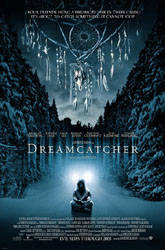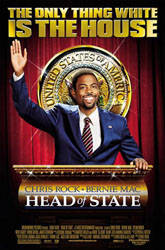 Director: Starring: Release: Date
|
Dreamcatcher BY: DAVID PERRY Until last summer I was oblivious to the acclaim that Stephen King has received from many people. Though I had been a fan of many of his cinematic works -- especially Stand by Me, The Shawshank Redemption, and The Dead Zone -- my only chance reading of one of his novels, The Shining, was especially disappointing. Considering that many King fans believe it to be his finest work, my lackluster reaction to the novel deterred me from returning to him. And last July, when in need of a quick book and finding a free copy, I decided to take my second stroll with King by reading Misery, the source of my second favorite King adaptation. To my surprise, Misery was the exact level of genius that I was looking for -- within its pages was the suspense he was known for as well as the pretentious self-reflexivity that I constantly look for in a novel. Though I have not had a chance to read any of his work since (I imagine the next will be The Dead Zone), this certainly created an excitement for his work that I had no interest in earlier. Then something like Dreamcatcher has to come along and screw up what was a nice King love-athon I was enjoying. I had always disregarded his abysmal TV miniseries (The Stand, The Tommyknockers, Needful Things) as his lesser efforts only to find the equivalent (both in quality and in length) in Dreamcatcher. A year ago, I would be most likely to blame King for the atrocity that Dreamcatcher is. However, the real blame seems to be impossible to place on any sincle person, including the two cinematic semi-icons who created this monster for the screen. William Goldman has been seen as a god among screenwriters since he wrote Butch Cassidy and the Sundance Kid, even though his best work since 1978's underrated Magic have been in his books about screenwriting instead of his occasional screenplays. His touch on this film -- coming after successfully adapting Misery for the screen in 1990 -- should have been golden. How, then, did it become such a wretched mess, in which nothing seems to make sense? Blaming Lawrence Kasdan, the Coppola-Lucas cohort who co-wrote some of the Indiana Jones and Star Wars films as well as directing such intolerable baby boomer fare as The Big Chill and Grand Canyon, would seem easy for me considering my low expectations for him anyway. But one gets the impression that he's trying to do something with this film despite the hurdles thrown in his way. The fact that he does it without really letting the seams show does deserve some credit. Seamless, however, this is not. Kasdan and Goldman make impeccable use of their media by attempting to somehow differentiate their work from the phantasmagoria of clichés, contrivances, overblown effects, and understated moments. There are momentary gems within this train wreck of a picture because the two men most at work on its success are diligent enough to never give up. And anyone in their right mind would have given up on this project from the very
beginning. Integrating childhood memories, telepathy, alien invasion, and fatal
gastrointestinal disorders into a single story seems odd, though King was apparently able
to pull it off in 800 pages. Working in a horribly paced two-and-a-quarter-hours, none of
this makes sense. For moments at a time, the camp cheesiness of an alien attacking a
person through a toilet -- something that Kasdan at least succeeds in creating the terror
such an invasion would mean unlike Stephen Sommers in Deep Rising -- is enough to
make the film seem tolerable. Or, perhaps, there's the wonderfully absurd moment when a
Henry (Jane), already poorly trying to convince Army Captain Owen Underhill (Sizemore) of
his sanity, begins using a pistol as a telephone. The final, abrupt ending is also
successful. But what strings all these moments together feels empty and pointless. |
|
| ©2003, David Perry, Cinema-Scene.com, 21 March 2003 | ||



